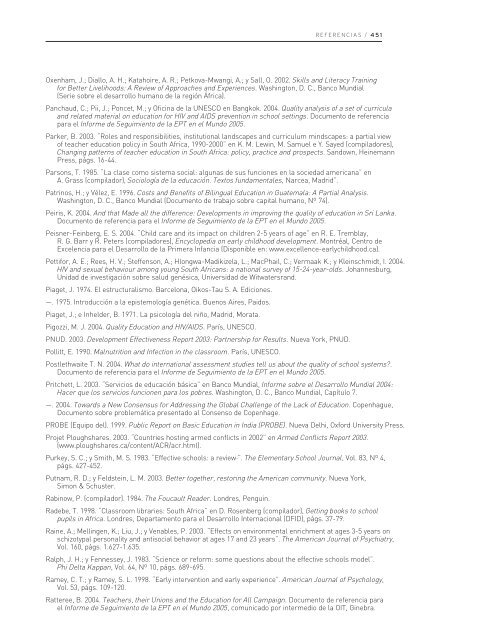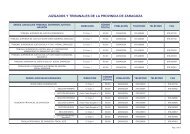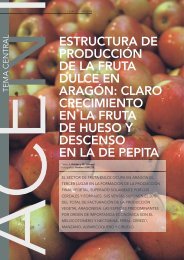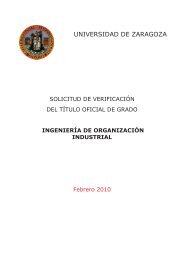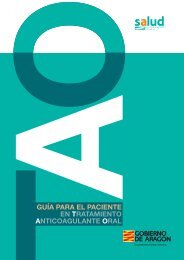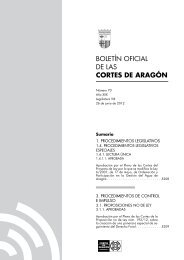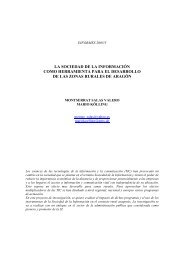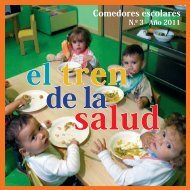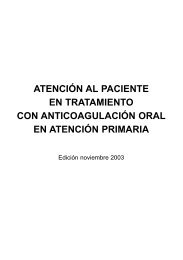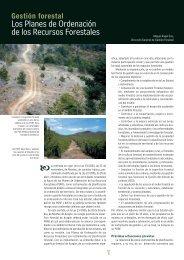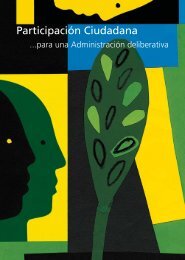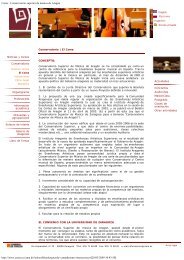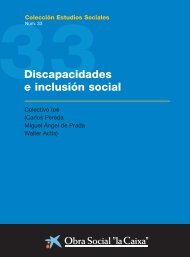Educación para todos: el imperativo de la calidad - unesdoc - Unesco
Educación para todos: el imperativo de la calidad - unesdoc - Unesco
Educación para todos: el imperativo de la calidad - unesdoc - Unesco
Create successful ePaper yourself
Turn your PDF publications into a flip-book with our unique Google optimized e-Paper software.
REFERENCIAS / 451<br />
Oxenham, J.; Diallo, A. H.; Katahoire, A. R.; Petkova-Mwangi, A.; y Sall, O. 2002. Skills and Literacy Training<br />
for Better Liv<strong>el</strong>ihoods: A Review of Approaches and Experiences. Washington, D. C., Banco Mundial<br />
(Serie sobre <strong>el</strong> <strong>de</strong>sarrollo humano <strong>de</strong> <strong>la</strong> región África).<br />
Panchaud, C.; Pii, J.; Poncet, M.; y Oficina <strong>de</strong> <strong>la</strong> UNESCO en Bangkok. 2004. Quality analysis of a set of curricu<strong>la</strong><br />
and r<strong>el</strong>ated material on education for HIV and AIDS prevention in school settings. Documento <strong>de</strong> referencia<br />
<strong>para</strong> <strong>el</strong> Informe <strong>de</strong> Seguimiento <strong>de</strong> <strong>la</strong> EPT en <strong>el</strong> Mundo 2005.<br />
Parker, B. 2003. “Roles and responsibilities, institutional <strong>la</strong>ndscapes and curriculum mindscapes: a partial view<br />
of teacher education policy in South Africa, 1990-2000” en K. M. Lewin, M. Samu<strong>el</strong> e Y. Sayed (compi<strong>la</strong>dores),<br />
Changing patterns of teacher education in South Africa: policy, practice and prospects. Sandown, Heinemann<br />
Press, págs. 16-44.<br />
Parsons, T. 1985. “La c<strong>la</strong>se como sistema social: algunas <strong>de</strong> sus funciones en <strong>la</strong> sociedad americana” en<br />
A. Grass (compi<strong>la</strong>dor), Sociología <strong>de</strong> <strong>la</strong> educación. Textos fundamentales, Narcea, Madrid”.<br />
Patrinos, H.; y Vélez, E. 1996. Costs and Benefits of Bilingual Education in Guatema<strong>la</strong>: A Partial Analysis.<br />
Washington, D. C., Banco Mundial (Documento <strong>de</strong> trabajo sobre capital humano, Nº 74).<br />
Peiris, K. 2004. And that Ma<strong>de</strong> all the difference: Dev<strong>el</strong>opments in improving the quality of education in Sri Lanka.<br />
Documento <strong>de</strong> referencia <strong>para</strong> <strong>el</strong> Informe <strong>de</strong> Seguimiento <strong>de</strong> <strong>la</strong> EPT en <strong>el</strong> Mundo 2005.<br />
Peisner-Feinberg, E. S. 2004. “Child care and its impact on children 2-5 years of age” en R. E. Tremb<strong>la</strong>y,<br />
R. G. Barr y R. Peters (compi<strong>la</strong>dores), Encyclopedia on early childhood <strong>de</strong>v<strong>el</strong>opment. Montréal, Centro <strong>de</strong><br />
Exc<strong>el</strong>encia <strong>para</strong> <strong>el</strong> Desarrollo <strong>de</strong> <strong>la</strong> Primera Infancia (Disponible en: www.exc<strong>el</strong>lence-earlychildhood.ca).<br />
Pettifor, A. E.; Rees, H. V.; Steffenson, A.; Hlongwa-Madikiz<strong>el</strong>a, L.; MacPhail, C.; Vermaak K.; y Kleinschmidt, I. 2004.<br />
HIV and sexual behaviour among young South Africans: a national survey of 15-24-year-olds. Johannesburg,<br />
Unidad <strong>de</strong> investigación sobre salud genésica, Universidad <strong>de</strong> Witwatersrand.<br />
Piaget, J. 1974. El estructuralismo. Barc<strong>el</strong>ona, Oikos-Tau S. A. Ediciones.<br />
—. 1975. Introducción a <strong>la</strong> epistemología genética. Buenos Aires, Paidos.<br />
Piaget, J.; e Inh<strong>el</strong><strong>de</strong>r, B. 1971. La psicología d<strong>el</strong> niño, Madrid, Morata.<br />
Pigozzi, M. J. 2004. Quality Education and HIV/AIDS. París, UNESCO.<br />
PNUD. 2003. Dev<strong>el</strong>opment Effectiveness Report 2003: Partnership for Results. Nueva York, PNUD.<br />
Pollitt, E. 1990. Malnutrition and Infection in the c<strong>la</strong>ssroom. París, UNESCO.<br />
Postlethwaite T. N. 2004. What do international assessment studies t<strong>el</strong>l us about the quality of school systems.<br />
Documento <strong>de</strong> referencia <strong>para</strong> <strong>el</strong> Informe <strong>de</strong> Seguimiento <strong>de</strong> <strong>la</strong> EPT en <strong>el</strong> Mundo 2005.<br />
Pritchett, L. 2003. “Servicios <strong>de</strong> educación básica” en Banco Mundial, Informe sobre <strong>el</strong> Desarrollo Mundial 2004:<br />
Hacer que los servicios funcionen <strong>para</strong> los pobres. Washington, D. C., Banco Mundial, Capítulo 7.<br />
—. 2004. Towards a New Consensus for Addressing the Global Challenge of the Lack of Education. Copenhague,<br />
Documento sobre problemática presentado al Consenso <strong>de</strong> Copenhage.<br />
PROBE (Equipo d<strong>el</strong>). 1999. Public Report on Basic Education in India (PROBE). Nueva D<strong>el</strong>hi, Oxford University Press.<br />
Projet Ploughshares. 2003. “Countries hosting armed conflicts in 2002” en Armed Conflicts Report 2003.<br />
(www.ploughshares.ca/content/ACR/acr.html).<br />
Purkey, S. C.; y Smith, M. S. 1983. “Effective schools: a review·”. The Elementary School Journal, Vol. 83, Nº 4,<br />
págs. 427-452.<br />
Putnam, R. D.; y F<strong>el</strong>dstein, L. M. 2003. Better together, restoring the American community. Nueva York,<br />
Simon & Schuster.<br />
Rabinow, P. (compi<strong>la</strong>dor). 1984. The Foucault Rea<strong>de</strong>r. Londres, Penguin.<br />
Ra<strong>de</strong>be, T. 1998. “C<strong>la</strong>ssroom libraries: South Africa” en D. Rosenberg (compi<strong>la</strong>dor), Getting books to school<br />
pupils in Africa. Londres, Departamento <strong>para</strong> <strong>el</strong> Desarrollo Internacional (DFID), págs. 37-79.<br />
Raine, A.; M<strong>el</strong>lingen, K.; Liu, J.; y Venables, P. 2003. “Effects on environmental enrichment at ages 3-5 years on<br />
schizotypal personality and antisocial behavior at ages 17 and 23 years”. The American Journal of Psychiatry,<br />
Vol. 160, págs. 1.627-1.635.<br />
Ralph, J. H.; y Fennessey, J. 1983. “Science or reform: some questions about the effective schools mod<strong>el</strong>”.<br />
Phi D<strong>el</strong>ta Kappan, Vol. 64, Nº 10, págs. 689-695.<br />
Ramey, C. T.; y Ramey, S. L. 1998. “Early intervention and early experience”. American Journal of Psychology,<br />
Vol. 53, págs. 109-120.<br />
Ratteree, B. 2004. Teachers, their Unions and the Education for All Campaign. Documento <strong>de</strong> referencia <strong>para</strong><br />
<strong>el</strong> Informe <strong>de</strong> Seguimiento <strong>de</strong> <strong>la</strong> EPT en <strong>el</strong> Mundo 2005, comunicado por intermedio <strong>de</strong> <strong>la</strong> OIT, Ginebra.


